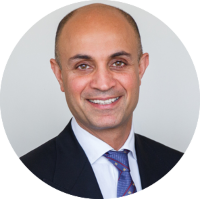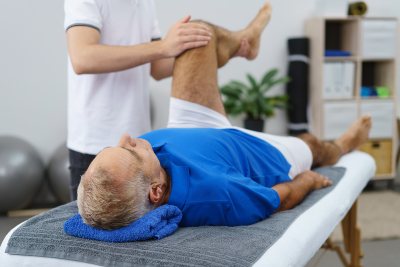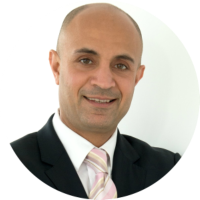REVISION HIP REPLACEMENT MELBOURNE
Revision Hip Replacement Melbourne – A patient’s guide
Dr Arash Riazi – MBBS, BSc (Med), FRACS (Ortho), F.A.Orth.A.
Orthopaedic Surgeon.
 This guide is to help you understand the benefits and limitations of revision hip replacement surgery.
This guide is to help you understand the benefits and limitations of revision hip replacement surgery.
It explains what revision hip replacement surgery is, who could benefit, what to expect, potential complications and recovery information that may help you get the best results from your surgery.
If you have any questions about revision hip replacement surgery, please contact my offices using the details below.”
Dr Arash Riazi – Orthopaedic Surgeon
If you have any questions please call
(03) 9898 4216
New patients welcome.
Please bring a referral from your GP or Specialist.
Revision Hip Replacement Melbourne
What is it
A revision hip replacement is a surgical procedure that replaces some or all of the old prosthetic components in a current artificial hip joint.
Revision hip replacement surgery is a more complex procedure than the primary hip replacement surgery as it requires careful planning and specialised tools.
What are the main differences
Total hip replacement – This surgery involves removing the damaged bone and cartilage in your hip joint and replacing it with an artificial joint, made of highly durable metal and plastic components.
Revision hip replacement – This procedure is more complex as it may require the removing of current failing artificial joint components and replacing and/or reworking them into a more secure, structural environment.
A revision hip replacement can vary in degree of complexity depending on how much of the original components need to be removed and replaced. It could be anything from minor surgery/adjustment to major surgery removing all of the components of the primary hip replacement and replacing parts of the bone with extra pieces of bone (bone graft) or metal augments specifically manufactured from 3D printouts of your bone defects using the latest technology.
Why consider having revision hip replacement surgery
A primary hip replacement can last for around 20-25 years and sometimes for life. A revision hip replacement may be required when an old hip replacement fails. This could be for a number of reasons including:
- Wear and tear of the old artificial joint causing damage or loosening of components
- Infection
- Persistent pain
- Recurrent hip dislocation (hip popping out of place)
- Weakening of the bone around the hip
- Periprosthetic fracture (fracture around a hip replacement)
The aim of a revision hip replacement is to improve stability, reduce pain, improve mobility and remove infection if present.
Dr Riazi will speak to you in more detail about the revision hip procedure including the benefits, risks and complexities. Alternatives to surgery include painkillers to manage your pain and/or life-long antibiotic treatment to treat any infection that may be present.
Revision Hip Replacement Melbourne
What happens during surgery
An anaesthetist will assess you and decide on the most suitable form of anaesthetic. Usually you are given a general anaesthetic so that you are completely asleep during the operation.
Dr Riazi will see you before the operation to answer any questions you may have and mark the site of surgery.
Revision hip replacement surgery may involve the replacement of one or all of the components of the original hip replacement. Prior to surgery, Dr Riazi will perform a series of tests that may include:
- X-rays
- 3 dimensional CT scan to determine the extent of damage
- 3D print replication of your hip and bone structure – This technology has enables the careful preoperative planning and treatment.
A revision hip replacement may take 3 or more hours as it is a more complex surgical procedure. If there is there is a deep infection the revision may be performed as a two stage process with the first stage removing any infected prosthesis and tissue.
Usually this will have been planned however sometimes an unexpected infection may be found during surgery when a full replacement had been planned.
Revision hip replacement Melbourne – Surgical approaches
The approaches are the same for primary total hip replacement but generally take longer (anterior/posterior/anterolateral). Dr Riazi will discuss the best approach for you prior to surgery.
During hip revision surgery, an incision is made over the original incision from the primary hip replacement and then the hip joint is exposed. Then some or all of the original prosthesis will be removed and if cement was used this will also be removed. The parts of the prosthesis that were not attached to bone can be safely removed with minimum damage to bone. However, if there is contact between the metal joint and the bone, there will be some bone loss. Extra pieces of bone (bone graft) can be used to fill in the voids. The area is then cleaned and prepared for the revision implant.
In some instances patient specific implants are specially made based on the complexity of the defects. Cell-saver technology is used to give back to you the blood you lose during or at the end of the procedure and this helps reduce blood loss.
Preparing for revision hip surgery with Dr Riazi
Once the decision is made between yourself and Dr Riazi to have surgery, his team will help prepare you for the operation. Here is a checklist to help you prepare:
1. Medical Conditions
Please ensure you notify Dr Riazi about any medical conditions you have. We also recommend you make an appointment with your GP to asses:
- Your general health prior to your surgery
- Your fitness for surgery and anaesthesia
- The need for pre-operative tests such as blood tests, cardiogram and/or a chest x-ray.
If you have any dental work planned, make sure that it is completed well in advance of surgery. It is important that any dental infections are dealt with prior to joint surgery, due to the potential risk of infection.
In the week before surgery if you experience any cold symptoms, fever or other illness, please notify Dr Riazi immediately.
2. Medication
If you are taking any medication, including herbal medicines please let Dr Riazi know. Please bring in a list of your medications to your appointment with Dr Riazi and when you come into hospital for surgery.
Medicines that thin your blood will need to be stopped before surgery. Also some other types of medication such as corticosteroids and insulin will also need to be managed before and after surgery. If you have any questions about your medicines please contact Dr Riazi.
3. Smoking
 Smoking increases your risks of problems during and after surgery, including risk of infection. Stopping smoking before your procedure and staying smoke free during recovery may substantially improve wound healing as well as your general health. We advise you contact your GP to help you develop a plan to quit smoking before your surgery.
Smoking increases your risks of problems during and after surgery, including risk of infection. Stopping smoking before your procedure and staying smoke free during recovery may substantially improve wound healing as well as your general health. We advise you contact your GP to help you develop a plan to quit smoking before your surgery.
4. Keeping fit
It is important to try and be as fit as possible before surgery to reduce the chance of complications and reduce the length of your recovery. Your GP will be able to provide you with further advice.
5. Fasting guidelines
Dr Riazi will advise you regarding the fasting recommendations. In general, for morning surgery we advise to fast from midnight the night before the procedure and for surgery scheduled for the afternoon patients should fast from 6am on the day of surgery. You can have clear fluids up until 2 hours before surgery.
6. Home Preparation
There are a number of measures you can take to prepare for coming home after surgery.
- Rearrange the furniture so that you can easily manoeuvre throughout your home
- Remove any rugs or throws that may cause a fall
- You may need to install special equipment for use in your bathroom such as a shower chair, handrails or a raised toilet seat.
Other items that can be useful are long handled shoehorns and grabbing tools or reacher. Place items that you need to use such as mobile phone, remote control and medicines near where you sit.
You may also need assistance with household chores like cooking and shopping, so plan ahead for this. It is a good idea to prepare and freeze some meals ahead or arrange for someone to bring meals to you.
Revision hip replacement Melbourne
Possible complications
The risks and complications are similar to primary total hip replacement, however given the revision is a more challenging and complex surgery, the risk of any single complication is greater.
Generally speaking, the outcome is not as predictable and there is likely to be some loss of range of movement in the revised hip. Possible complications include:
Bleeding – There is a risk of blood loss during the procedure and this can be significantly higher risk in revision surgery. Sometimes a blood transfusion may be required. Cell -Saver technology has reduced the requirement of blood transfusion allowing your own blood to be given back to you at the end of the procedure. TXA (tranexamic acid ) has also shown to reduce blood loss during these complex cases.
Venous Thromboembolism (VTE) – A VTE is when there is a blood clot inside a blood vessel. There are two types of VTE:
- Deep Vein Thrombosis (DVT) – this is a blood clot that forms in a vein, usually in the leg. Signs and symptoms include redness, swelling and pain but sometimes there are no symptoms at all.
- Pulmonary Embolism (PE) – is when the blood clot becomes dislodged and travels to the lung. Symptoms of a PE include chest pain, breathlessness and coughing.
All patients are given measures to prevent a VTE from happening. These may include blood thinning medications and below the knee compression stockings. It is important to move around as soon as possible after surgery. The nursing and physiotherapy staff will help you.
Infection – There is a risk of infection in the wound site. You will be given antibiotics both during and after your surgery to help prevent this.
Pain – With any surgical procedure, you may experience some pain. Dr Riazi and the medial staff use various anaesthetic techniques to minimise this and provide you with painkillers to help manage your pain. It is important that you get adequate pain relief so that you are able to move around as soon as possible after your operation
Anaesthesia risks – Your anaesthetist will meet with you before the operation and discuss the risks with you as well as the best option for you.
Dislocation of the hip – There is a very small risk of dislocation of the hip. This is when the ball pops out of the socket. It could happen at any stage however the highest risk is the few days and weeks following surgery. A physiotherapist will see you after surgery. It is important to follow their advice on strengthening exercises and general movement to prevent this from happening.
Fracture of femur – May occur while removing implants during revision hip surgery. Your surgeon may deliberately split a segment of the femur (thighbone) to make removal of the implant easier. If your femur or acetabulum is cracked during surgery, you may have to remain on crutches to allow healing to occur.
Please contact hospital staff or Dr Riazi immediately if:
(1) Your hip or calf becomes swollen, red and/or hotter or more painful than before
(2) Fever or night sweats
(3) Clicking or sensation of instability in your hip joint
(4) A “popping” sounds of the hip.
After your operation
Recovery and rehabilitation after revision hip surgery are very similar to primary hip surgery. Some patients may find they take longer to recover than they did with their original hip replacement surgery.
After your operation you will be transferred to a hospital recovery room where you will be closely monitored and then to a surgical ward where nursing staff will look after you. We aim to have you out of bed and moving and using your new hip as soon as possible after the operation. This may help speed your recovery and reduce the chances of a blood clot.
Physiotherapy
A physiotherapist will help get you moving around as early as day 1. They will be there to guide you and show you strengthening exercises to make your muscles stronger and show you the movements you need to avoid.
Post surgical follow-up
On the day after your surgery Dr Riazi and a specialist physician will see you. You will have been given pain medication to help manage any aches or discomfort as effectively as possible, so that you are able move around.
We aim to send most patients home by day 3 although some patients may take longer to recover. You may need to use crutches in order to walk for 3-6 weeks. By following your physiotherapy program effectively you may be able to walk around without crutches sooner.
REVISION HIP REPLACEMENT MELBOURNE
IMPORTANT NOTE
This information is designed to be a guide only. Every patient has unique needs and will react differently to surgery, pain management and recovery approaches.
If you would like more details or have any worries or questions about Revision Hip Replacement surgery please contact my offices so I may address your concerns.
REVISION HIP REPLACEMENT MELBOURNE
Dr Riazi consults with public and private orthopaedic patients from all over Melbourne in relation to revision hip replacement surgery. His current consulting locations include Epworth Eastern Hospital in Box Hill and Box Hill Hospital (Eastern Health) in Box Hill.

